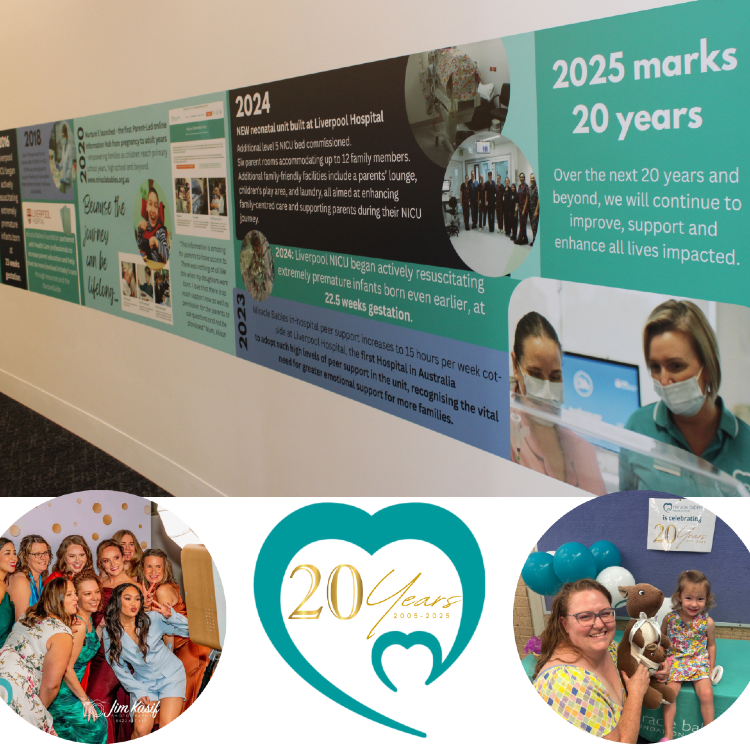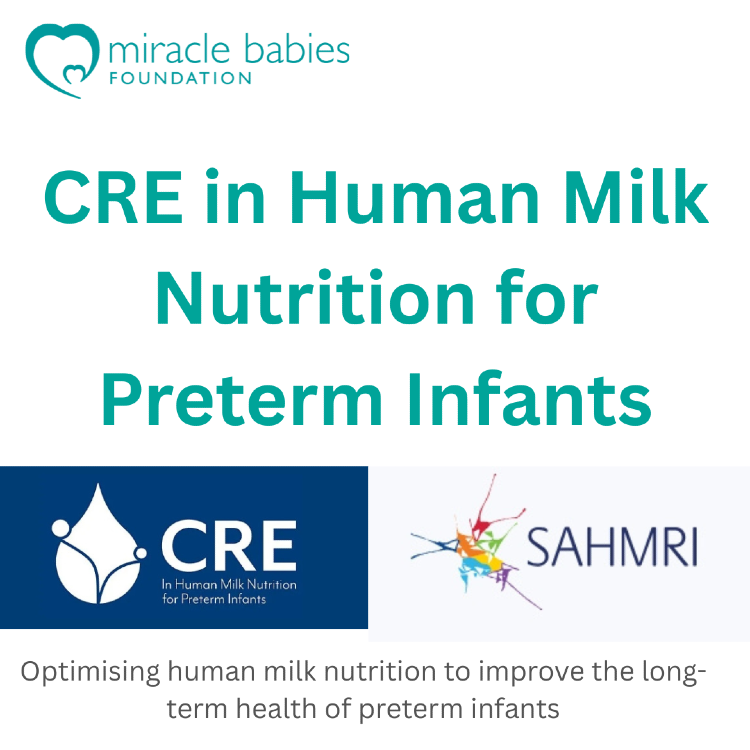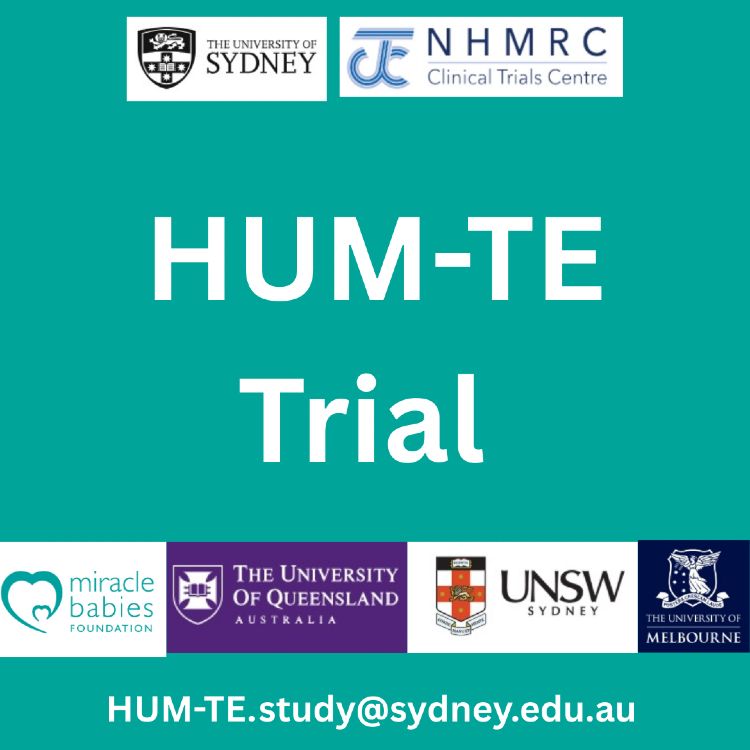11 August 2025
Premature Birth and Postpartum Psychosis - Katrina's Story
Having a baby born premature or sick is usually a very different path than what you had expected. When your baby is in a neonatal unit, it can feel like your whole world has been turned upside down. At different times you may experience a combination of powerful feelings, such as; fear, love, guilt, elation, anxiety, joy, isolation, pride, sadness, anger, confusion, numbness, disappointment and a range of other emotions.
While it’s completely natural to feel overwhelmed, sometimes those feelings can spiral, leading you into a deep and unexpected darkness such as experiencing Postpartum Psychosis.
Postpartum Psychosis
Many new parents have never heard of postpartum psychosis until they or someone close to them experience it.
What is it?
Postpartum psychosis is a rare but severe mental health condition that can occur suddenly after childbirth. It is considered a psychiatric emergency.
How common is it?
It affects approximately 1 to 2 in every 1,000 new mothers.
When does it start?
Symptoms usually begin within the first few days or weeks after birth and often very suddenly.
What are the symptoms?
-
Hallucinations (seeing or hearing things that aren’t there)
-
Delusions (false beliefs)
-
Extreme confusion or disorientation
-
Severe mood swings
-
Agitation or restlessness
-
Insomnia
-
Thoughts of self-harm or harm to the baby (not all mothers experience this, but it can occur)
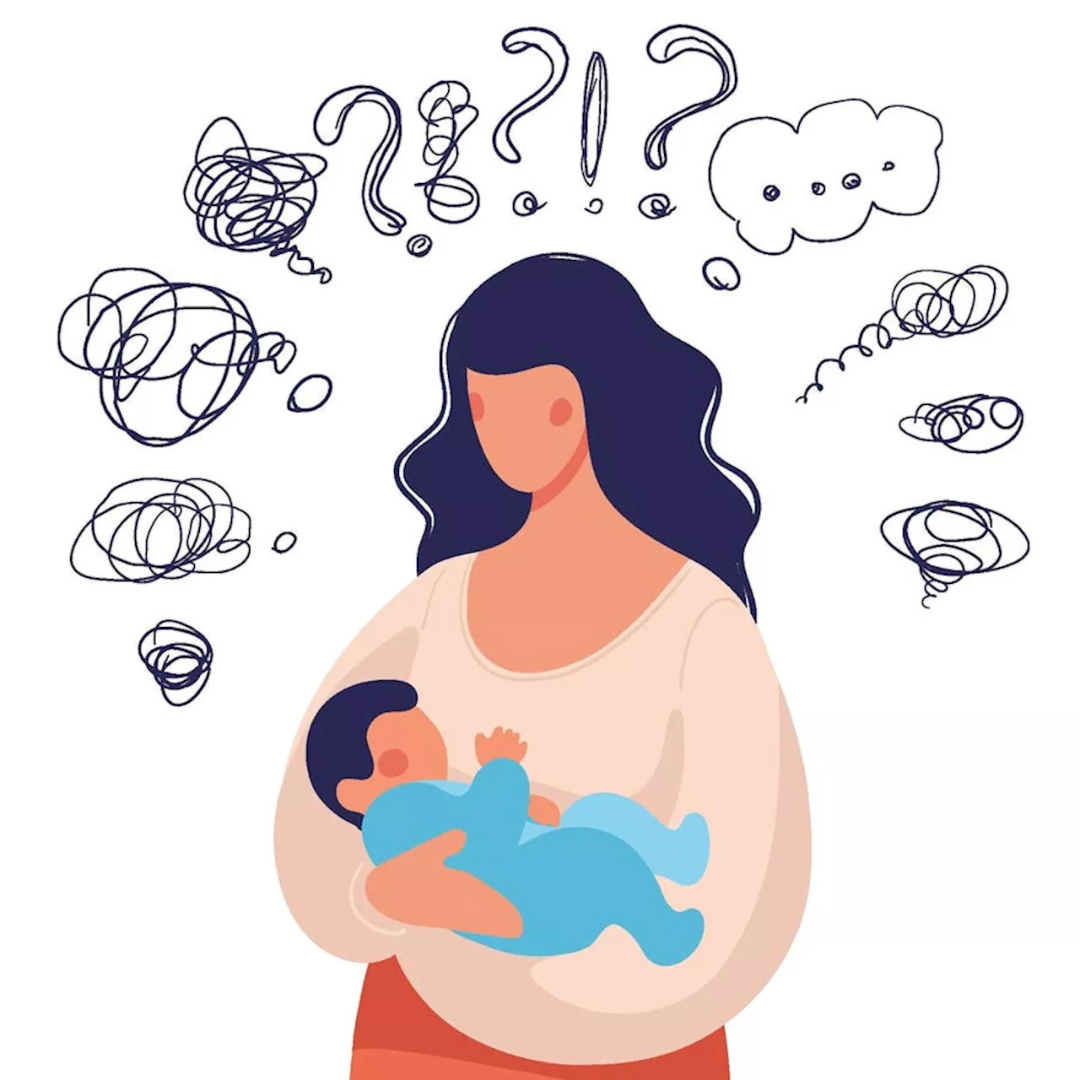
Women who have a premature birth are at higher risk of developing mental health issues during and after birth. While premature birth isn’t a direct cause, it can be a triggering factor for postpartum psychosis in someone who is already at risk, such as prior mental health conditions.
We sat down with a miracle mum, Katrina Weynberg to hear about her premature birth and postpartum psychosis experience.
Can you tell me a little about your pregnancy and birth experience?
-
My pregnancy with Mumford and Murphy was so exciting! We were first time parents, over the moon to be expecting two at the same time. Aside from morning sickness, all was well until 33 weeks. At my routine scan, the doctors said that Mumford stopped growing. They said it was a miracle that he held on until our next scan. He was circulating blood to only his head and his heart. When we were admitted, Mumford’s dopplers dropped and we went in for an emergency c-section.
The birth itself was beautiful, but birthing premature babies is not represented in mainstream media enough. So after I birthed my twins, I was hoping that I would have them on my chest. But this was not the case, instead I watched Mumford have respiratory support. They were quickly shuttled to the NICU and I had to wait over 8 hours to have either one of them on my chest...
When did you first notice that something didn’t feel quite right after giving birth?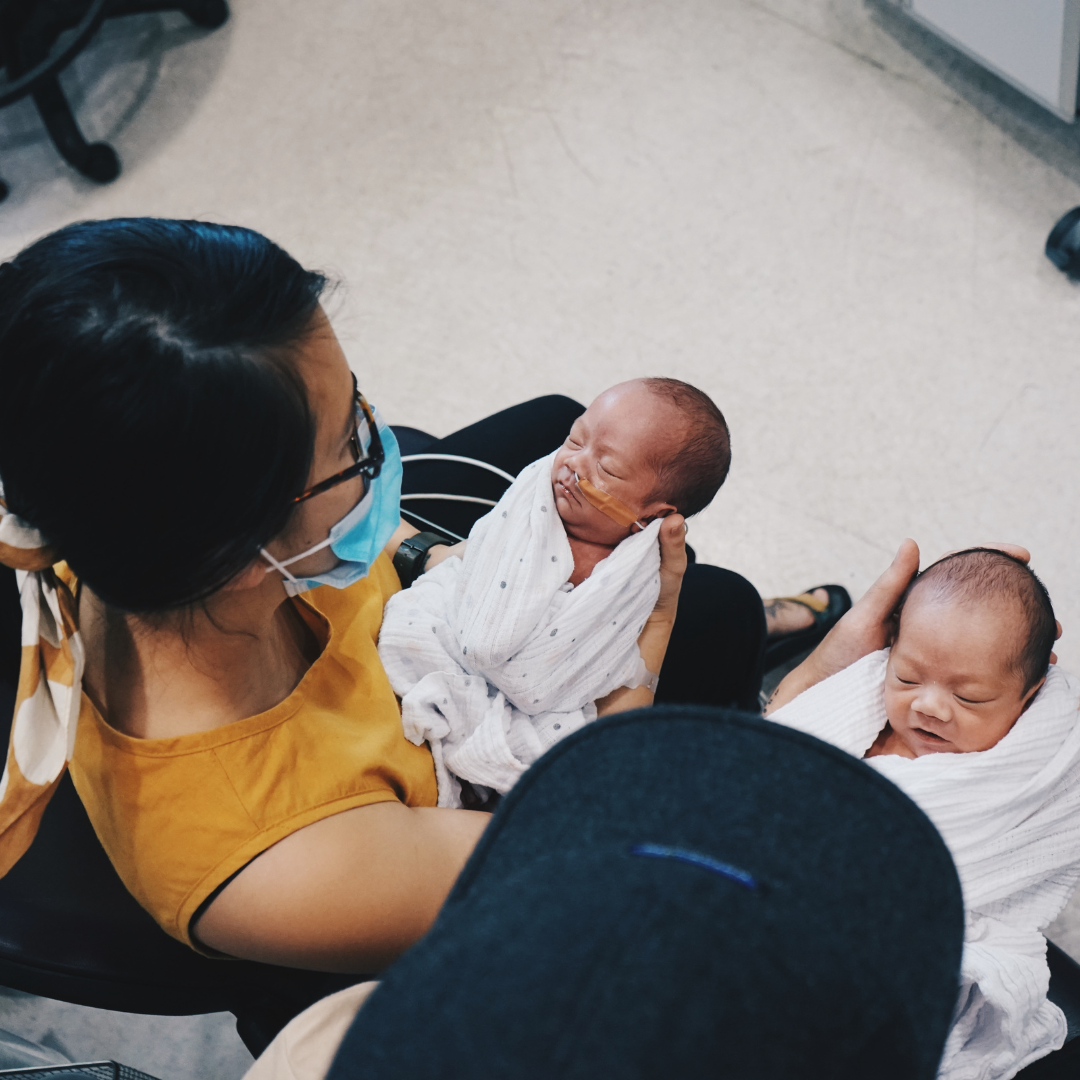
- The onset of my Postpartum Psychosis began within hours of giving birth. I had a rapid heartbeat that was beating out of my chest! When I met Mumford and Murphy, I had put a lot of pressure on myself to breastfeed them. Though when I finally held Mumford he had a CPAP on his face and was not ready to suckle. Over 12 days, I became unwell. I stopped sleeping, I was hyperactive, hypervigilant and I was having delusions. My husband was the person who first noticed that something didn’t feel quite right. With the Nurse Unit Manager of NICU, they walked me down to the emergency department, where I received healthcare. I am very thankful that my husband made the phone call for help.
- Were you familiar with postpartum psychosis before your own experience?
-
I was not familiar with postpartum psychosis before my own experience. I sat in the same waiting room at the same antenatal high risk clinic every two weeks, and I was not educated on this rare but possible illness! I wish that I had antenatal and postpartum education on this. Perhaps my experience would have been a little different and maybe I would have been the person to call for help.
How did your thoughts or perceptions change during that time?
During my Postpartum Psychosis, my thoughts and perceptions changed. My mind played tricks on me and made me think that I did not need sleep. It also put a lot of pressure on me to keep expressing milk even though I was so exhausted and so depleted. There was a disconnect between my mental state and physical state. I was moving at a rapid pace. My speech was so fast, I would forget to breathe. When you have psychosis, it's a loss of reality. I lost reality for 2 out of 7 weeks that my children were in the NICU/SCN. During this time, I felt like I missed milestones because I was so unwell.
Did you have any support from any organisations or hospital support during this time?During my onset, I called Miracle Babies once. Then, during the psychosis, I was admitted into an adult psychiatric ward for 33 days at the same hospital that I gave birth. When my children and I were discharged at the same time, we were supposed to go to a public Mother Baby Unit (MBU) but Westmead was not complete. With my children, I waited 5-6 months until the first ever public MBU was built at the Royal Prince Alfred Hospital. Here we had a 2-week admission and being admitted together was vital for my recovery.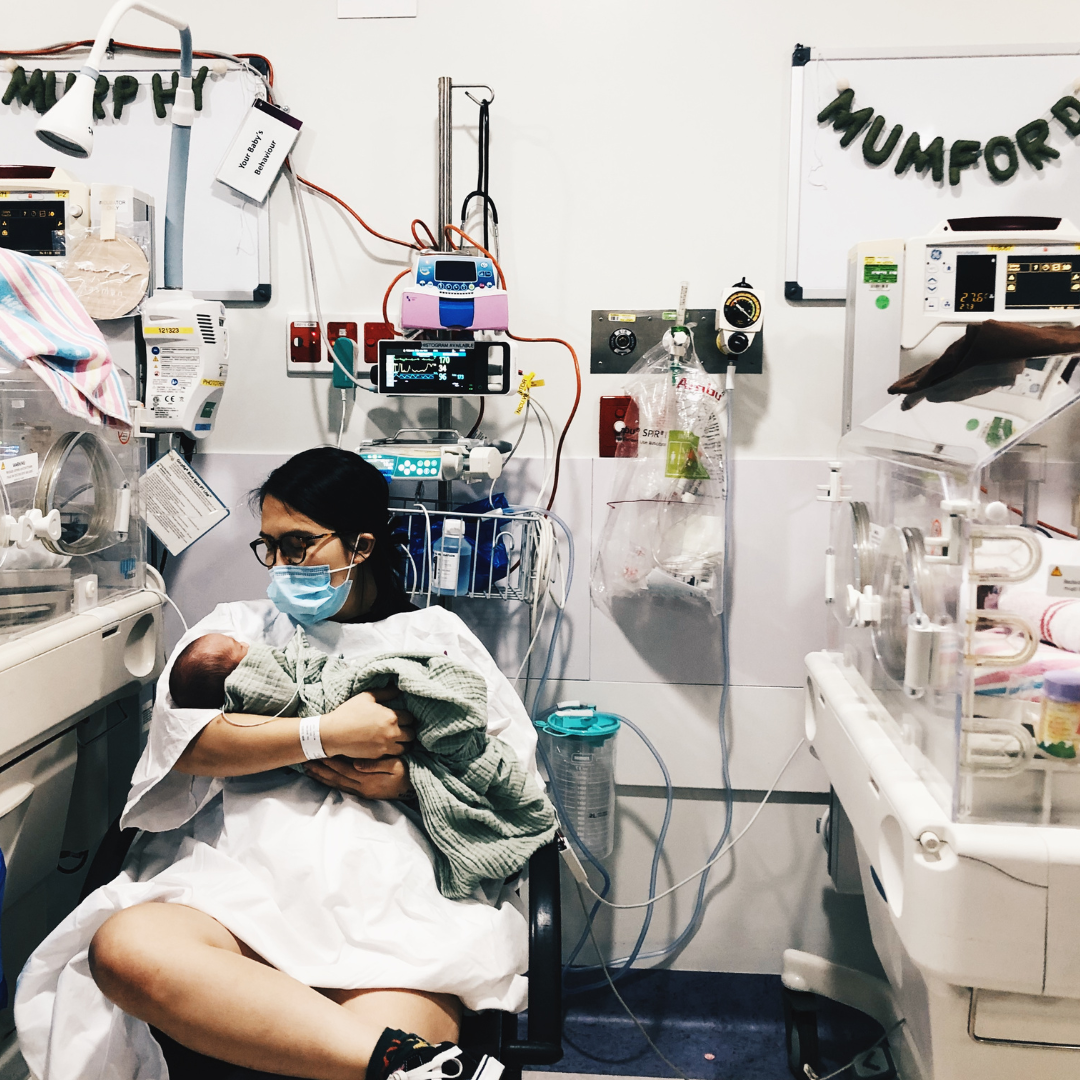
- Did you receive any support from Miracle Babies during the time you were in the hospital? I received a Miracle Babies cooler bag for my expressed breastmilk. I used this bag between the psychiatric ward and NICU. When I was on bed rest to catch up on sleep, my husband would come to the ward door to collect the cooler bag. Then when we were discharged, we went to a few NurtureGroups.
- What advice would you give to another mum going through something similar?Advice I would give to another family going through something similar is know that you are not alone. It's a rare 1 in 1000 women to receive the diagnosis, but there is another family out there who have sat in the waiting room for hours, been admitted into hospital and have been through a recovery journey.If you ever feel like you don’t need to sleep, seek professional advice from your GP. They will best advise you and help you through any crisis.Lean onto your people! Have your family, friends and neighbours help you nap when you can. It is so vital to rest when your child/ren are resting. Call hotlines and visit perinatal websites. There are some wonderful organisations out there with lots of parents sharing their lived experience. There are also lots of stories like these online that you can relate to.
- It’s amazing that you’re a mental health advocate. I’d love to hear more about the work you do in that space.
Being a mental health advocate gives you the opportunity to share your lived experience. Thank you Miracle Babies for having me on your platform and for allowing me to be the representation of Postpartum Psychosis for any NICU/SCN mums out there. When you can have a face to the experience, it makes it real and accepting it becomes a little easier.
I have been published in The Guardian titled ’ Katrina was separated from her newborn twins for 33 days. NSW psychiatrists warn specialised support for mothers is in crisis’. Here, the journalist shares my story and looks at the importance of psychiatric care and Mother Baby Units.
I have also written articles for perinatal organisations like COPE titled ‘Motherhood, Bipolar diagnosis and Neurodivergence’ and one on living with a partner who has mental health. In addition to this, I have spoken on a podcast titled ‘From Postpartum Psychosis to Bipolar Diagnosis: Katrina’s Story’. This podcast is soon to be released.
Most importantly, every month I run an online support group meeting, where we discuss different topics relating to recovery and parenting after postpartum psychosis.
How are you and your beautiful twins doing now? Fast forward 4 years, Mumford and Murphy are thriving. They are both very social and love making new friends! I have recovered from the psychosis and love advocating for mental health particularly with new parents and parents in the NICU.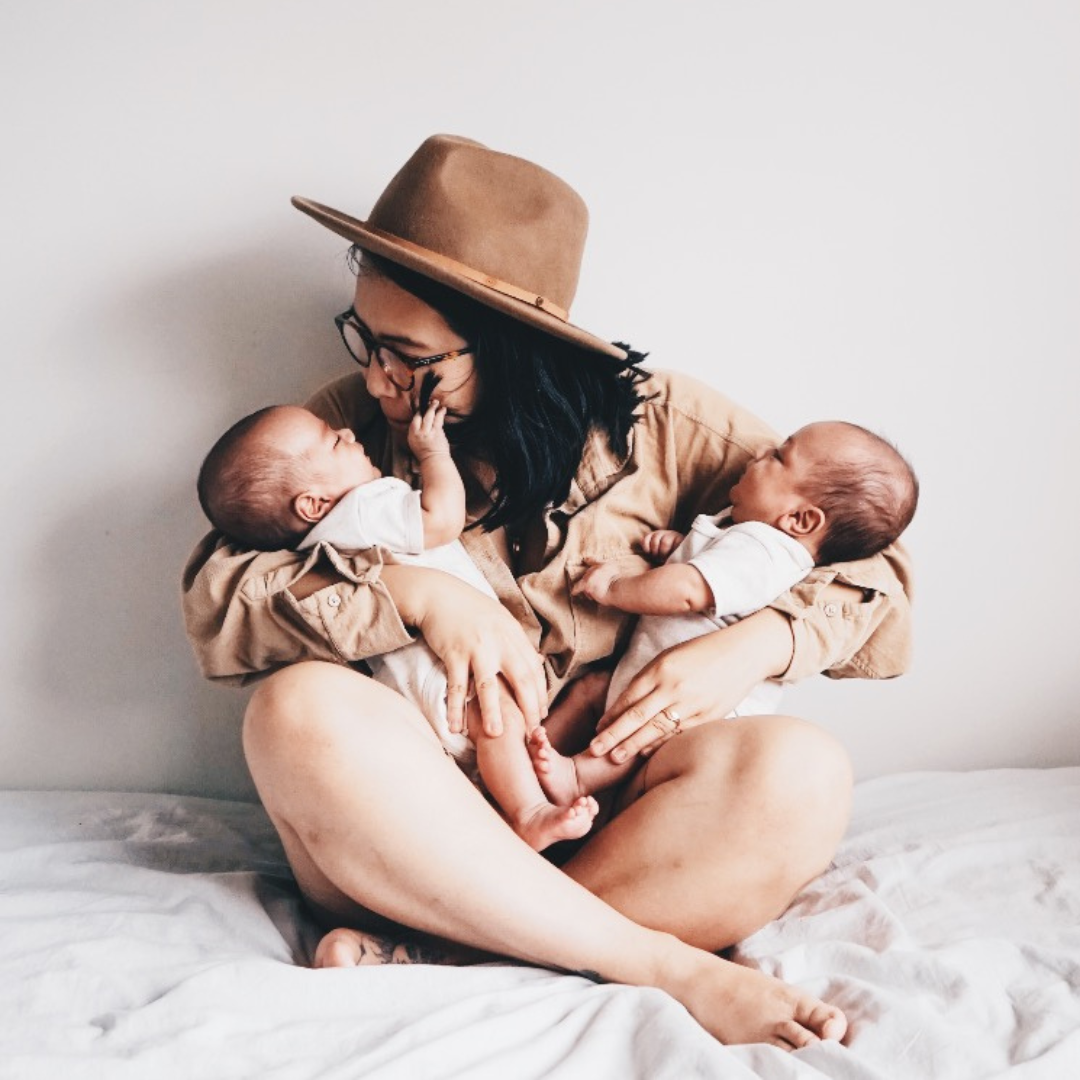
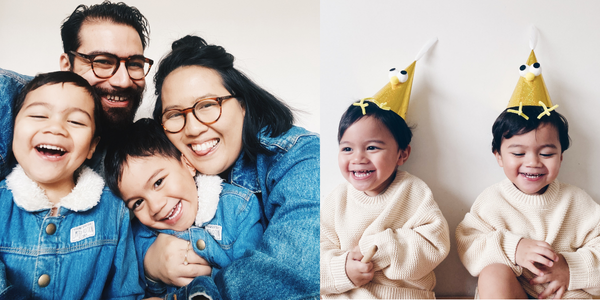
- Thank you, Katrina, for sharing your experience of premature birth and postpartum psychosis. Miracle Babies wishes you joy and good health in the years ahead.
